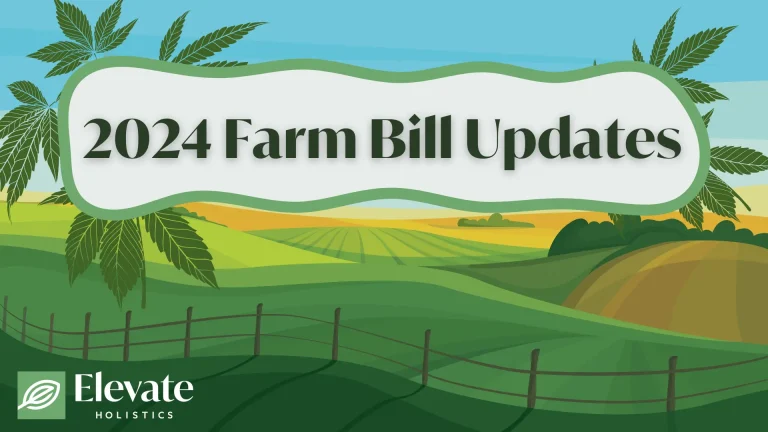In late April of this year, the DEA made a historic announcement: they agreed to reclassify marijuana from a Schedule I to a Schedule III substance. But, what is marijuana reclassification — and what does this mean for the US?
If you’re a bit confused, asking yourself how this affects you or those around you, you’re not the only one.
That’s why, today, we’re breaking down what this marijuana reclassification means and how it will change the cannabis industry.
The Marijuana Reclassification Proposal

If you aren’t familiar with what’s going on, let’s explain.
Essentially, the Drug Enforcement Administration (DEA), in consultation with the U.S. Department of Health and Human Services (HHS), has proposed a significant shift in drug policy: the reclassification of marijuana from a Schedule I to a Schedule III controlled substance under the Controlled Substances Act (CSA).
Right now, cannabis holds a Schedule I classification, grouping it with substances like heroin and LSD, which are considered to have no medical value and a high potential for abuse.
The proposed shift to Schedule III stems from recent findings acknowledging marijuana’s medical benefits and its relatively lower abuse potential compared to drugs in Schedules I and II.
So, Is Weed Legal Now?
Unfortunately, no, this does not mean weed is legal now.
Marijuana reclassification does not affect the federal legality of cannabis or cannabis products: it mainly acknowledges marijuana’s medical benefits and a lower potential for abuse compared to Schedule I substances.
This switch will facilitate research and may impact regulations, particularly around medical use, but does not change the legal status of recreational marijuana. I know, we wish.
Impacts on Medical and Recreational Consumption
So, how does this kind of reclassification impact medical marijuana? What about recreational cannabis?
Reclassifying marijuana to Schedule III significantly lowers the barriers to scientific research. Previously, as a Schedule I drug, marijuana was subject to the strictest regulatory restrictions, making it difficult for researchers to obtain and study.
Now, researchers can more easily access cannabis for clinical studies, which could lead to broader medical applications and a better understanding of its therapeutic benefits for qualifying conditions.
With the reclassification, the medical community expects to explore additional therapeutic uses, as easier research access could lead to new FDA-approved medications derived from or inspired by cannabis.
There is a growing divergence between state and federal laws regarding marijuana. While more than half the states in the U.S. have legalized marijuana in some form, either for medical or recreational use, it remains federally illegal.
This discrepancy creates a complex legal landscape where activities accepted in certain states still conflict with federal law. Reclassification may ease some of these tensions but does not resolve them.
Economic and Legal Implications of Marijuana Reclassification

One of the biggest areas we will see change in with this marijuana reclassification is within the banking world.
This change allows marijuana businesses to claim federal tax deductions and credits, which were previously unavailable due to IRS code 280E.
Under this code, businesses dealing in Schedule I or II substances could not deduct expenses related to the production and distribution of controlled substances.
The reclassification allows these businesses to operate more like traditional companies, improving their financial viability by significantly lowering their effective tax rates.
Despite some states legalizing marijuana, many banks have been hesitant to offer services to cannabis-related businesses due to the drug’s previous Schedule I status and ongoing federal illegality.
This has forced many businesses in the industry to operate on a cash-only basis, increasing risks and complicating operations.
While reclassification to Schedule III may encourage more banks to serve the cannabis industry, significant challenges remain. Federal laws that directly address banking and cannabis need to be amended to fully normalize banking relationships for these businesses.
Social Impacts
Finally, this marijuana reclassification has significant implications for the criminal justice system, particularly in the context of non-violent marijuana offenses.
Moving marijuana to a less restrictive category may lead to reduced sentencing for new non-violent offenses and could potentially influence the reevaluation of past convictions. This change reflects a broader shift toward treating drug use more as a public health issue than a criminal one.
Marijuana Reclassification and the Future of Cannabis
So, what does this marijuana reclassification mean for the future of cannabis? Well, we don’t have a crystal ball, so we can’t say exactly, but it appears as though this is a huge step towards cannabis reform.
We know this because Congress is also considering more ambitious reforms, such as removing marijuana entirely from the Controlled Substances Act.
However, internal disagreements have marked the rescheduling process within the DEA, and between the DEA and other federal entities like the Department of Health and Human Services and the White House.
These conflicts arise from differing opinions on marijuana’s risks and the best strategies for drug enforcement and public health. Effectively navigating these disagreements will be crucial for implementing the new classification and could affect the pace and smoothness of further reforms.
But, we have our fingers crossed.




